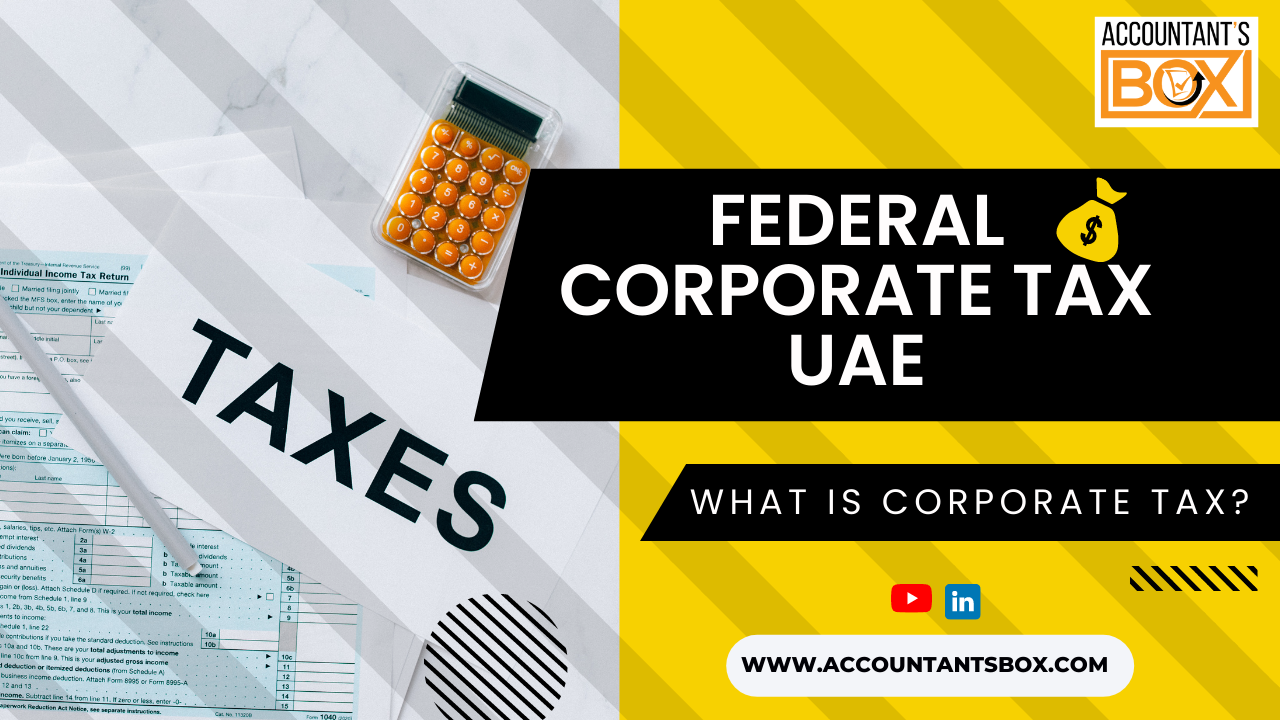Introduction of Federal Corporate Tax UAE
UAE has recently announced leavy of Corporate Tax on Net Profit of businesses. The final law is yet to be issued by the Federal Tax Authority (FTA). Meanwhile FTA has started sharing periodic information about Corporate Income Tax (“CIT”) to create awareness and seek public consultation.
Through this article, we are sharing important highlights from the knowledge shared by the FTA on the subject. The users may seek to obtain further information by reading detailed information shared by the FTA. We also welcome readers to connect withus for further knowledge on the subject.
What is Federal Corporate Tax UAE?
Corporate Tax is a form of direct tax levied on the Net Profit of corporations and other businesses. In many other jurisdictions it is also referred as “Corporate Income Tax”.
UAE CIT will apply to all UAE businesses and commercial activities alike. However there is exception for the extraction of natural resources, which will remain subject to Emirate level corporate taxation.
Effective date for Corporation Tax
The UAE federal corporate tax UAE regime will become effective for financial year starting on or after 1 June 2023.
Examples:
A business that has a financial year starting on 1 July 2023 and ending on 30 June 2024 will become subject to UAE CIT from 1 July 2023 (which is the beginning of the first financial year that starts on or after 1 June 2023).
A business that has a (calendar year) financial year starting on 1 January 2023 and ending on 31 December 2023 will become subject to UAE CIT from 1 January 2024 (which is the beginning of the first financial year that starts on or after 1 June 2023).
Applicability of New Tax in the UAE
The UAE CIT regime will be implemented without a parallel tax on the income of natural persons, namely individuals.
In order to level the playing field between incorporated businesses and unincorporated businesses owned by individuals, UAE CIT will also apply to natural persons engaged in a business or commercial activity in the UAE. This will include sole establishments or proprietorships and individual partners in an unincorporated partnership that conducts business in the UAE.
Employment income and other personal income earned by UAE and foreign individuals such as dividends, rental receipts from UAE real estate investments, and other investment income will not be within the scope of the proposed UAE CIT regime.
Federal Corporate Tax Rate in the UAE
The taxable income will be the accounting net profit of a business, after making adjustments for certain items to be specified under the UAE CIT law.
The accounting net profit of a business is the amount reported in the financial statements prepared in accordance with internationally acceptable accounting standards.
Federal Corporate Tax UAE Rates
The CIT rates broadly are:
- Taxable income up to AED 375,000 – 0% CIT;
- Taxable income above AED 375,000 – 9% CIT
Compliance Requirements
Accounting Records
- A business will be required to maintain financial and other records that explain the information contained within the CIT return and other documents submitted to the FTA.
- Prepare audited financial statements as determined by applicable company laws and regulations.
Registration and Deregistration
- A business subject to CIT will need to register with the FTA and obtain a Tax Registration Number within a prescribed period.
- Where a business ceases to be subject to the CIT it will need to apply to the FTA to be deregistered for CIT purposes within a prescribed period. E.g: Due to cessation or liquidation of the business.
- Prepare & file tax return and related supporting schedules with FTA for each annual tax period within prescribed period.
- Make payments within a period prescribed by FTA to settle taxpayer’s CIT liability for that Tax Period
For information on Federal corporate tax UAE, you could reach us at info@accountantsbox.com or contact us here
